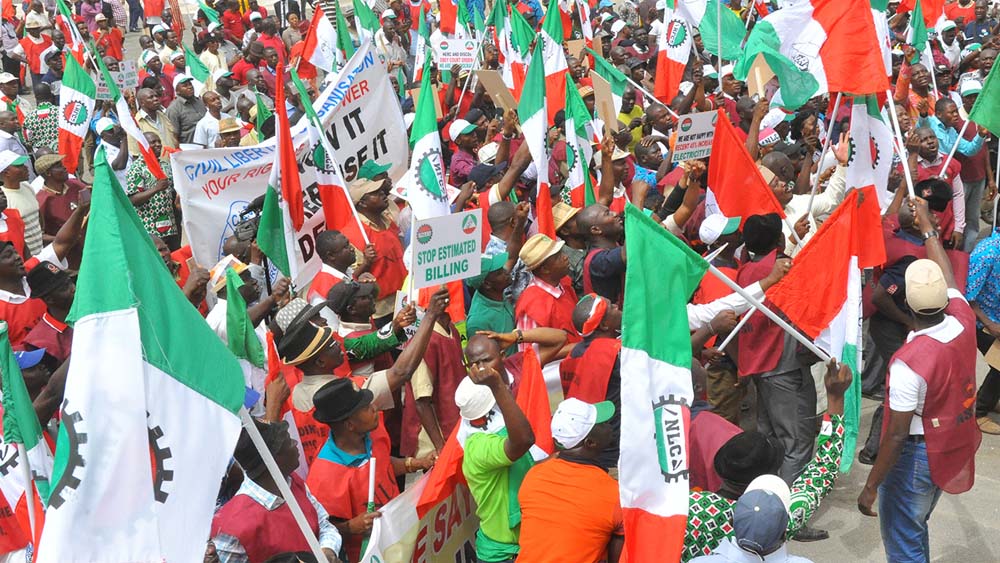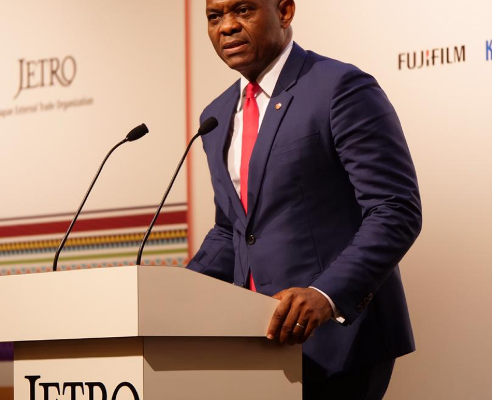Oil
Nigerian Govt sucumbs to UNEP,set to commence restoration of Ogoniland Q1 2015

By Yemie ADEOYE
GENEVA-FINALLY, The Federal Government of Nigeria appears set to commence the recommendations of th United Nations Environment Program, UNEP, on Ogoni land, in Rivers state, south-south Nigeria.
The Government announced that the restoration of Ogoniland will commence in first quarter next year in line with the recommendations of the United Nations Environmental Programme (UNEP) report vis-a-vis the multi-stakeholders group.
Speaking yesterday in Geneva, Switzerland at the follow-up meeting of technical working groups on environment restoration of Ogoniland, Mrs. Alison-Madueke stressed that the Federal Government is in a hurry to begin the implementation of the United Nations Environment Programme report which recommended the spending of about $1billion dollars for the cleaning up of the oil spills that have been ravaging the oil producing community for decades.
“Yes the government feels it is important to start the process in an aggressive manner. We also think that there are some quick-wins that the can be started as early as January next year. If we do not get to do this within a very short period, we may not get to do it again. The Federal Government is ready to fulfill its own counterpart funding that will not be path of the regular budgetary provision and that why an independent body has been set up to manage the fund. On our part, government is committed to ensure this process is kick-started and will continue to take practical steps to encourage all the stakeholders to see to the success of the implementation.”
While the Minister tasked the four Technical Working Groups to ensure that there are associated costs of all the items that are listed, she also stressed the need to have financial implementing framework that will guide the implementation process.
While reacting to the call for the involvement of more community members in the multi-stakeholders committee, she cautioned against proliferation of agencies and bodies that may likely impede the speed of the implementation process.
The Minister of Petroleum Resources stressed that the restoration of Ogoniland will not only contribute to massive creation of jobs for the Niger Delta people, but will help extend business opportunities well beyond communities where oil is produced.
However, she was quick to point out the need to ensure that Ogoni youth are empowered to be employers of labour and not working for people saying, “it is better to equip the youth to engage in ventures that can make them employer of labour. They should be able to employ more people and not just be working for other people.”
On his part, the Archbishop of Sokoto diocese, Mathew Kukah, cautioned against heavy reliance on bureaucracy and stressed that the spirit of voluntarism must be built into the youth and all members of the Ogoniland.
He also called for the translation of the UNEP report in local languages spoken in the six kingdoms of the Ogoiland to ensure that the community members are in sync with the intent and letters of the report.
The technical working groups were made up of Environmental Remediation/Monitoring Legislation,Contracting,Procurement and Fund Management,Sustainable Development and Livelihood Initiatives and Community Engagement and Communication.
Oil
NNPC Targets 60% Methane Emission Reduction By 2031
The Nigerian National Petroleum Company Limited (NNPC) has unveiled a bold strategy to reduce methane emissions in the oil and gas sector by 60% by 2031, with an ultimate goal of achieving net-zero emissions by 2060.
This announcement reinforces Nigeria’s leadership role under the Global Methane Pledge initiative and its commitment to tackling climate change.
The Group Chief Executive Officer of NNPC, Mele Kyari, disclosed these plans during a meeting on Thursday with Robert Leahman, the U.S. State Department’s Global Methane Program Manager, and a delegation from Deloitte.
READ MORE: Atiku Gloats Over AUN’s Achievements Ahead Of 20th Anniversary
The discussions, held at the NNPC Towers in Abuja, focused on collaborative efforts to reduce methane emissions through innovative and sustainable practices.
“Reducing methane emissions is not just an environmental necessity but also a strategic imperative for Nigeria’s energy transition. We are leveraging partnerships to adopt global best practices and innovative solutions,” Kyari stated.
Key among these efforts is a pilot project in the Niger Delta, aimed at establishing emissions baselines, mitigating methane leaks, and promoting sustainable operations across Nigeria’s energy sector.
The project, a partnership between NNPC, Deloitte, and the U.S. Bureau of Energy Resources, will utilize data-driven methodologies to pinpoint and address methane hotspots.
Robert Leahman commended Nigeria’s proactive stance, describing it as a benchmark for other nations on the continent.
“Nigeria’s leadership under the Global Methane Pledge sets a standard for the continent. These initiatives will not only help reduce emissions but also drive sustainable development in the energy sector,” he said.
Kyari highlighted the broader benefits of addressing methane emissions, noting its significance for both environmental protection and economic efficiency.
“This collaboration is a game-changer. By addressing methane leaks, we’re reducing waste, saving costs, and protecting the environment. It’s a win-win for our economy and the planet,” he added.
Oil
FG Introduces New Incentives To Revitalize Nigeria’s Oil & Gas Industry
In a strategic move to revitalize Nigeria’s oil and gas sector, the Federal Government has unveiled two key fiscal incentives aimed at attracting investment and enhancing energy security.
The announcement was made by Mr. Wale Edun, the Minister of Finance and Coordinating Minister of the Economy on Wednesday.
The first initiative, the Value Added Tax (VAT) Modification Order 2024, introduces critical exemptions for essential energy products and infrastructure, including Diesel, Feed Gas, Liquefied Petroleum Gas (LPG), Compressed Natural Gas (CNG), Electric Vehicles, Liquefied Natural Gas (LNG) infrastructure, and Clean Cooking Equipment.
Read Also: Atiku Calls For Rotational Presidency Across Nigeria’s Geopolitical Zones
These exemptions are designed to reduce living costs for Nigerians, promote energy security, and accelerate the transition to cleaner energy alternatives.
The second initiative, the Notice of Tax Incentives for Deep Offshore Oil & Gas Production, offers new tax relief options for deep offshore exploration projects.
This measure aims to position Nigeria’s deep offshore basin as a premier destination for international oil and gas investments, boosting the country’s appeal to foreign investors.
These reforms are part of a broader set of policy initiatives, known as Policy Directives 40-42, endorsed by President Bola Ahmed Tinubu.
The directives reflect the administration’s commitment to fostering sustainable development in the energy sector and enhancing Nigeria’s competitive edge in the global oil and gas market.
Business
Tinubu set to approve ExxonMobil-Seplat oil deal, expands CNG bus initiative

By Yemie Adeoye
NIGERIA’s President Bola Tinubu has announced that the protracted ExxonMobil-Seplat upstream oil divestment will be formally approved by the Minister of petroleum within a matter of days, just as he announced his government’s intention to expand the Compress natural Gas, CNG buses initiative.
The President who stated this during his Independence day nationwide broadcast stated that the move is in line with his administration’s commitment to free enterprise, free entry and free exit in investments which is the hallmark of his administration investment policy.
“Fellow compatriots, our administration is committed to free enterprise, free entry, and free exit in investments while maintaining the sanctity and efficacy of our regulatory processes. This principle guides the divestment transactions in our upstream petroleum sector, where we are committed to changing the fortune positively. As such, the ExxonMobil Seplat divestment will receive ministerial approval in a matter of days, having been concluded by the regulator, NUPRC, in line with the Petroleum Industry Act, PIA. This was done in the same manner as other qualified divestments approved in the sector.”
The President also seized the opportunity to plead with Nigerians to be patient with his administration’s reform policies. “As your President, I assure you that we are committed to finding sustainable solutions to alleviate the suffering of our citizens. Once again, I plead for your patience as the reforms we are implementing show positive signs, and we are beginning to see light at the end of the tunnel”.
“Our energy transition programme is on course. We are expanding the adoption of the Presidential Initiative on Compressed Natural Gas for mass transit with private sector players. The Federal Government is ready to assist the thirty-six States and FCT in acquiring CNG buses for cheaper public transportation.
Fellow Nigerians, while we are working to stabilise the economy and secure the country, we also seek to foster national unity and build social harmony and cohesion. Our economy can only thrive when there is peace”. he enthused.


















